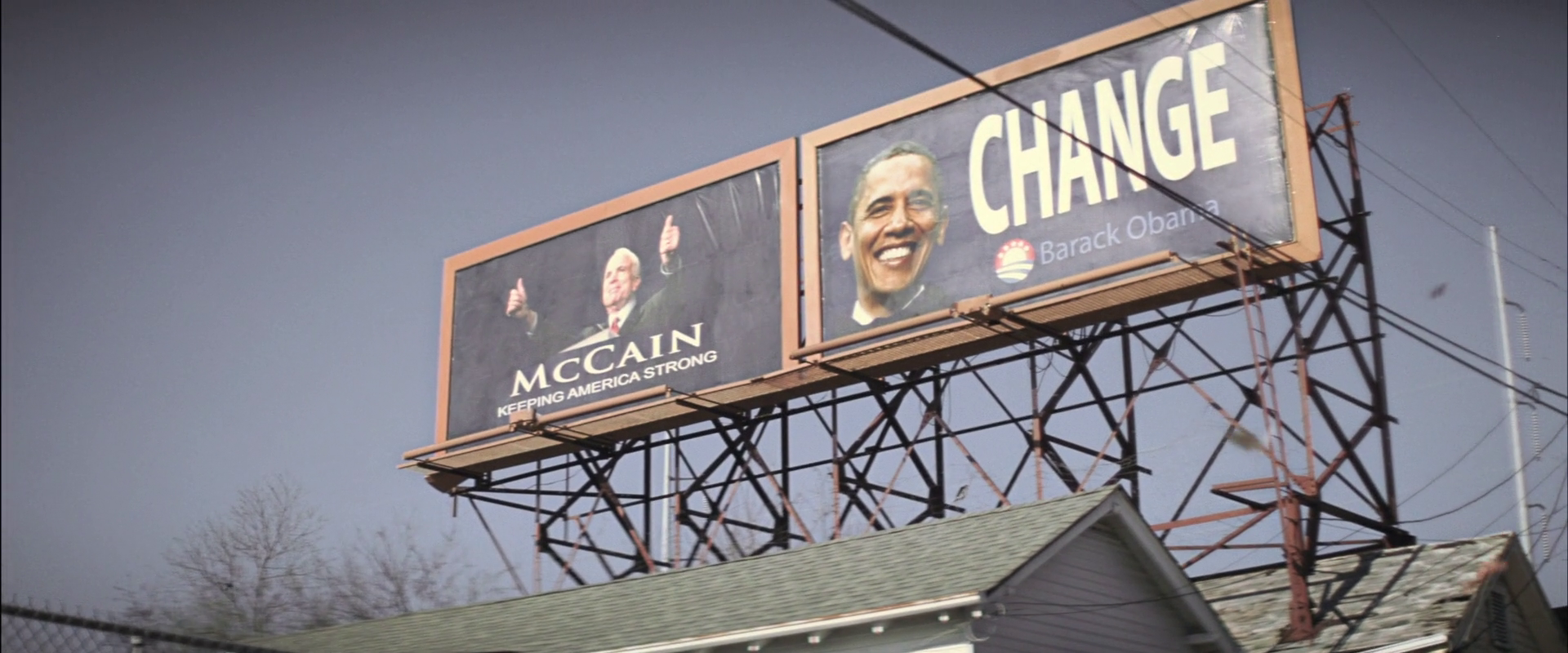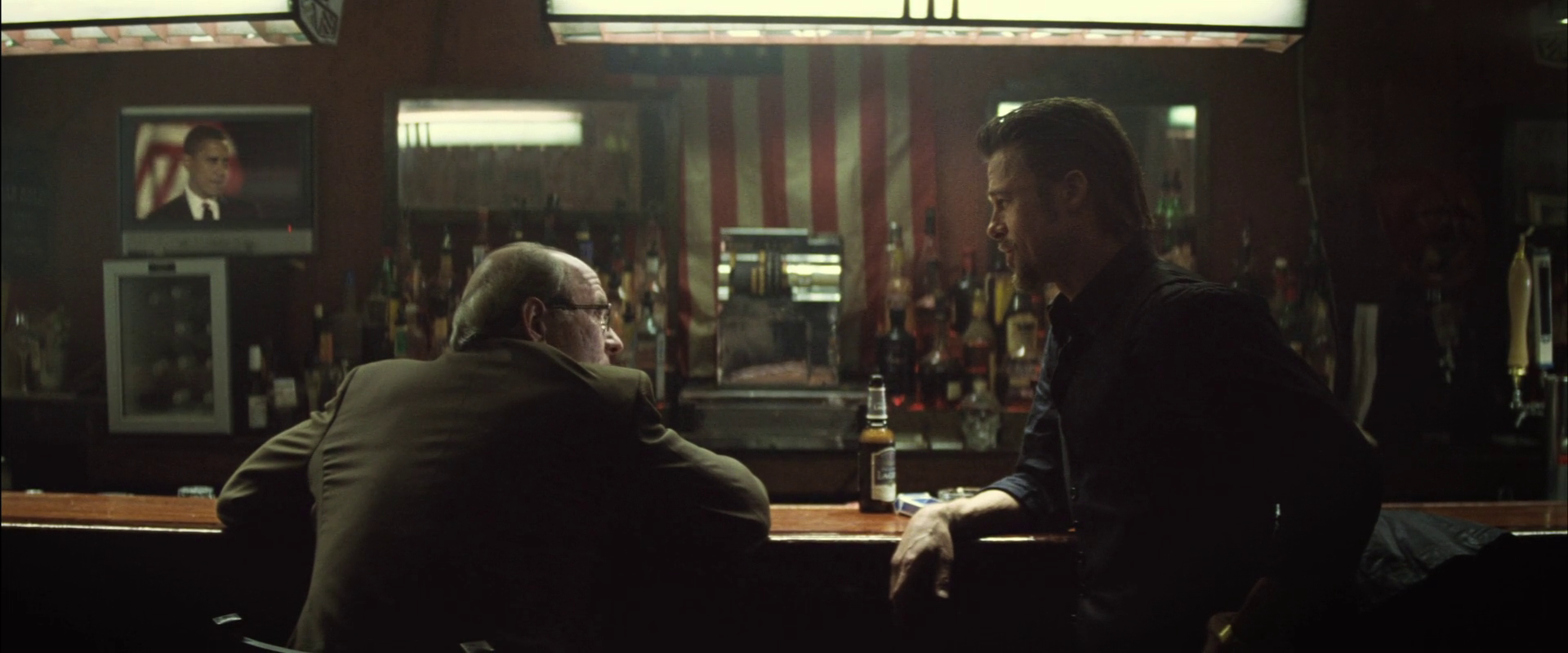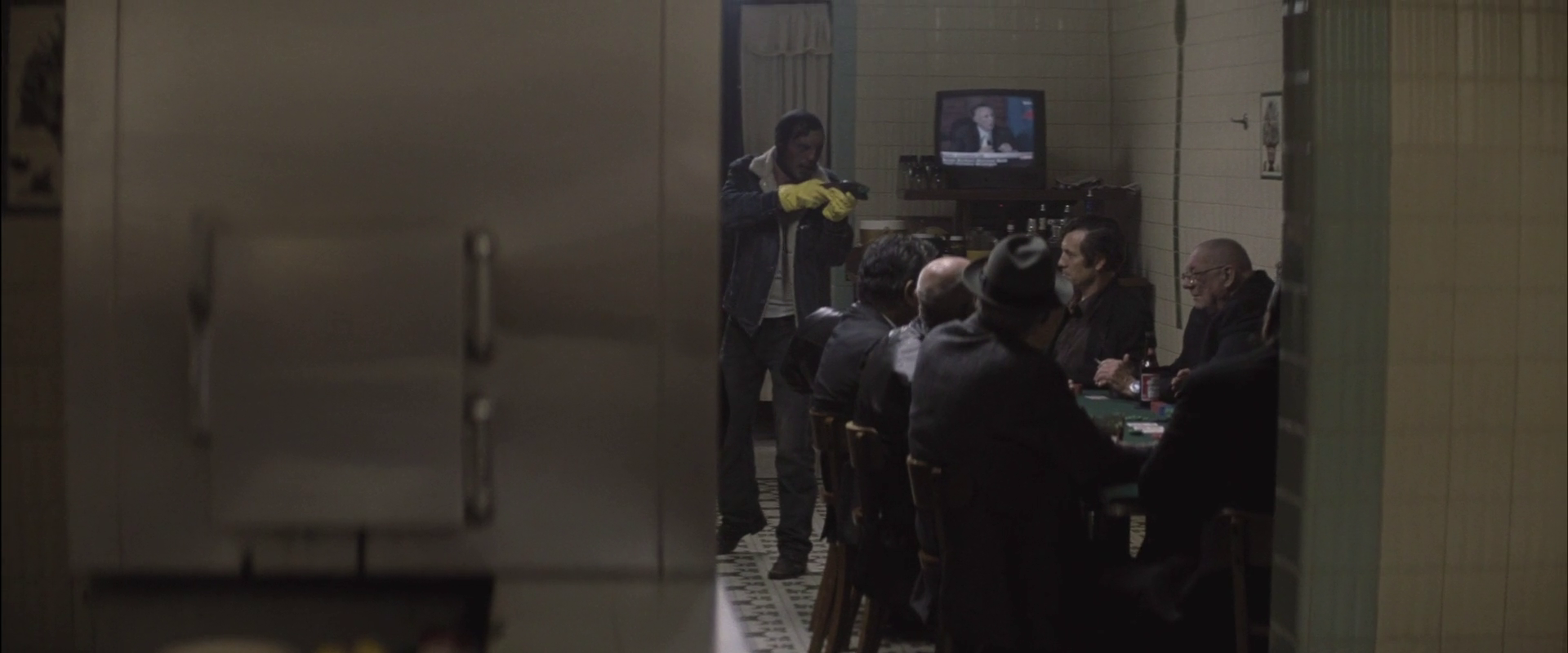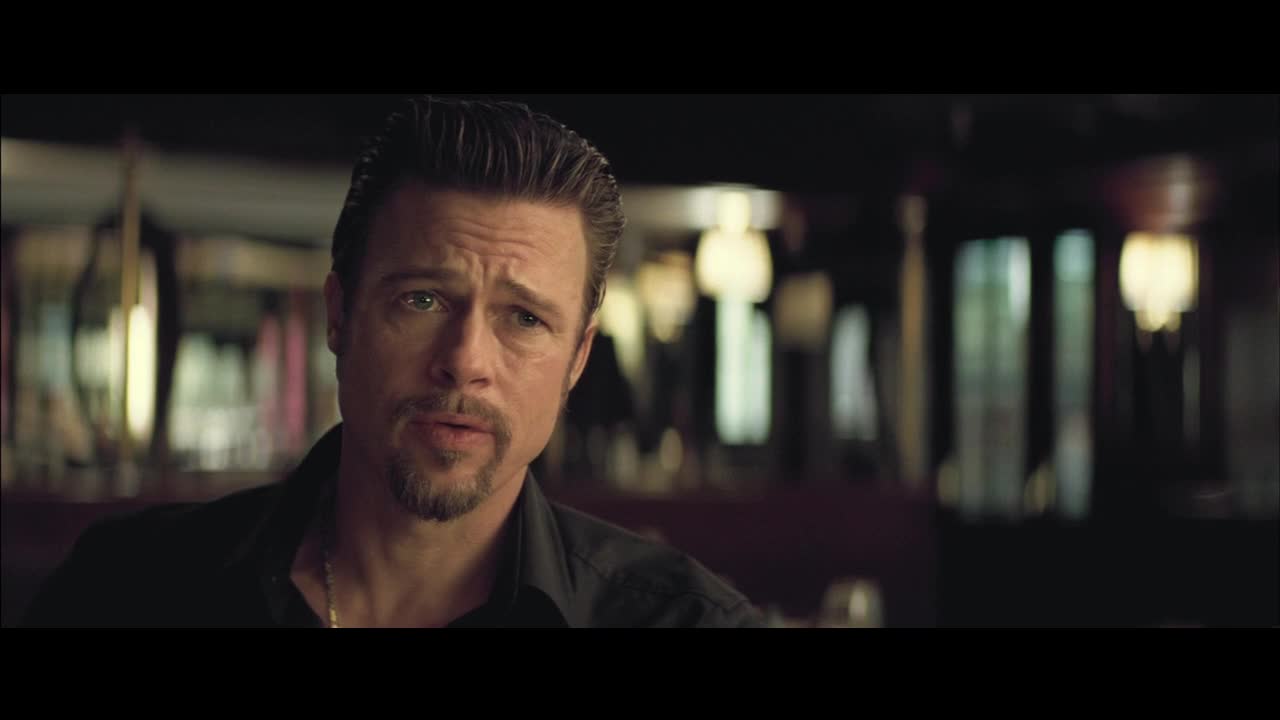In real life, I don’t know any criminals of the type depicted in 2012’s Killing Them Softly (or in its source material, the 1974 novel Cogan’s Trade). My high school Bible study leader, a gigantic ex-cop named Al who claimed to be related to “some tough guys” and who always had The Godfather playing when we went to his house, was about as close as I’ve ever gotten.
 However, I’m reasonably sure that real life mobsters watch a lot less C-SPAN. Out of a desperate desire to turn Higgin’s novel into a timely bit of political commentary, Andrew Dominik has speeches from Obama, McCain, and Bush play as atmospheric sound in roughly every third scene. (Killing Them Softly was made in 2012, but is set in 2008.)
However, I’m reasonably sure that real life mobsters watch a lot less C-SPAN. Out of a desperate desire to turn Higgin’s novel into a timely bit of political commentary, Andrew Dominik has speeches from Obama, McCain, and Bush play as atmospheric sound in roughly every third scene. (Killing Them Softly was made in 2012, but is set in 2008.)
It’s a deeply peculiar move. These speeches are not just filler or place-setting; the striking opening scene has the 3 words of the film’s title cut one-by-one into audio of a speech of Obama’s, each word accompanied by a Penderecki-esque drone, as if the words (white text on black background) are the equivalent of the black monolith.
The constant speeches go unreferenced by the characters — even when the doomed protagonists rob a mobster’s poker game, setting off the series of assassinations that drive the plot and lead to their death, the elderly mafiosi are silently watching Obama on C-SPAN — until the last scene.
 Brad Pitt (playing the fantastically greasy, but charming main hitman) has finally killed off most of the cast, and is demanding his payment from Richard Jenkins (who plays his mob middleman role with a mixture of boredom and irritation, not far from his performance in Cabin in the Woods). Suddenly, though, the two engage in a college undergrad-worthy conversation about the phoniness of the “American dream,” about Thomas Jefferson proclaiming all men equal while having slaves, and about Obama’s optimism.
Brad Pitt (playing the fantastically greasy, but charming main hitman) has finally killed off most of the cast, and is demanding his payment from Richard Jenkins (who plays his mob middleman role with a mixture of boredom and irritation, not far from his performance in Cabin in the Woods). Suddenly, though, the two engage in a college undergrad-worthy conversation about the phoniness of the “American dream,” about Thomas Jefferson proclaiming all men equal while having slaves, and about Obama’s optimism.
“America’s not a country, it’s just a business. Now fucking pay me,” Pitt says, and the film ends (with one of the most obvious music cues ever — Barrett Strong’s version of “Money (That’s What I Want)”).
What? That’s the climactic political reference this movie has been building to the entire time?
After 90 minutes of politicians giving speeches from every TV and looking down from every billboard, it’s a completely vacuous payoff. No wonder this is one of the 19 movies to get an “F” rating from CinemaScore.
But, I wondered as I made sense of the movie, what would you expect? At the most obvious level, the point, that politicians are basically crooks, is blindingly obvious and has been made by 1,000 different films. Other than that point of contact, what other point could be made here?
 J. Hillis Miller’s The Ethics of Reading ultimately comes to the conclusion that there is one ethical meaning to be taken from any novel: that the novel turns to the reader, shrugs, and says: “Don’t look for any ethical meaning here, dummy.” I wonder if there’s something similar at play in political movies, and in particular those like Killing Them Softly that are trying desperately to comment on the reality of politics, not just morals and ideals.
J. Hillis Miller’s The Ethics of Reading ultimately comes to the conclusion that there is one ethical meaning to be taken from any novel: that the novel turns to the reader, shrugs, and says: “Don’t look for any ethical meaning here, dummy.” I wonder if there’s something similar at play in political movies, and in particular those like Killing Them Softly that are trying desperately to comment on the reality of politics, not just morals and ideals.
As the years pass and the particulars become less particular, the film more and more seems to exceed the initial creators’ intentions. It seems to me to turn to us at home and say: “Yes, the director wants me to say, ‘Hey, politicians are crooks,’ but you know that already.” And then they shrug and say: “Look, man, you already know all this. Don’t look for any political meaning here. Why the hell would it be any different? Why are you going to mob movies for your political commentary?”

